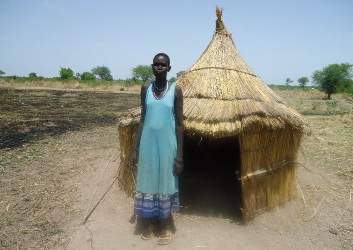South Sudan: Government and partners in joint community-led sanitation campaign
By Julius N. Uma
August 18, 2012 (JUBA) – The South Sudanese government announced on Friday its support for Community-Led Total Sanitation (CLTS), which seeks to reduce the threat water and sanitation-related diseases pose on the population in the young nation.

“Through the approach, the communities are facilitated in a participatory manner to appraise and analyse their sanitation practice and take appropriate corrective measures,” said Phillip Othieno, a CLTS specialist with the United Nations Children Fund (UNICEF).
“This often results in actions to stop open defecation which is common practice in many communities,” he added.
WORRYING TREND
At least six million people in South Sudan still defecate in open places, a practice likely to escalate the risk in escalation of water and sanitation-related diseases in the young nation, health experts have warned.
An estimated 1.1 billion people, according to UNICEF, will defecate in the open today while in South Sudan, it says, nearly 6 million people are likely to defecate in the open, due to lack of facilities or simply ignorance of the danger open defecation poses to society.
“Open defecation is major contributing factor to myriad of water and sanitation related diseases such as diarrhoea, typhoid, polio, cholera, acute respiratory infection amongst others,” Othieno noted.
At least 4, 713 cases of diarrhoea, according to South Sudanese ministry of health statistics, were reported in the second week of July, 58 percent of which occurred among children, while 14 deaths related to these incidents were also recorded.
Also on the increase, statistics indicate, are cases of malnutrition and typhoid, which, it says, can easily be prevented if there are improvements in hygiene and sanitation-related practices.
RAY OF HOPE
On Friday, Adiem village, located in Gogrial County of Warrap State, South Sudan was officially declared Open Defecation Free (ODF), after health experts verified the area, which reportedly consists of 68 households.
“This is a very important achievement as it marks the first known ODF village in the country,” Othieno told Sudan Tribune, adding that, “The development offers hope to the country as it struggles to deal with the devastating effects of poor sanitation.
The CLTS campaign in Adiem is just one of the interventions being spearheaded by the Government of South Sudan, UNICEF and other partners, with facilitation from the Agency for Technical Cooperation and Development (ACTED).
Albert Eluzai, the Director for Rural Water, Sanitation and Hygiene in the Ministry of Water and Irrigation, says the success of the CLTS in communities largely depends on changes in the behaviour and attitude of its members.
“As government and partners, we cannot succeed in improving sanitation within the various communities, unless the community members are willing to change for the betterment of their society,” said Eluzai.
He, however, expressed optimism that the current partnership between the South Sudanese government and its development partners will boost former efforts to meet its target of ensuring that at least 50 per cent of all households in the young nation have access to basic sanitation facilities by 2020.
(ST)
